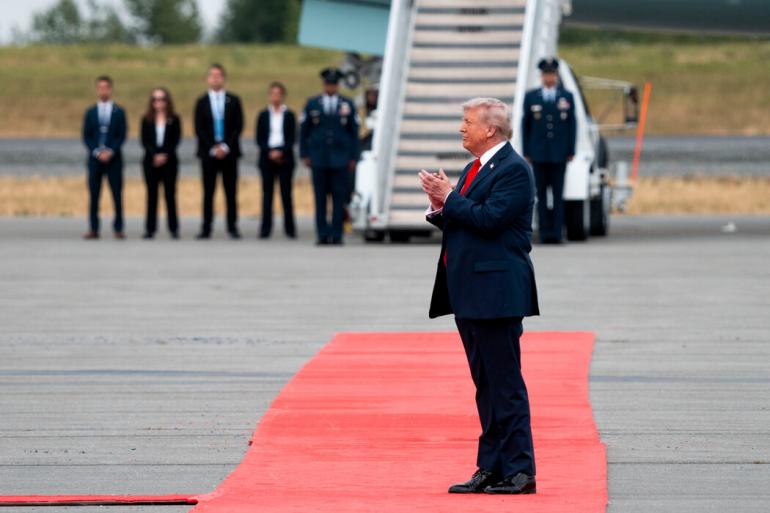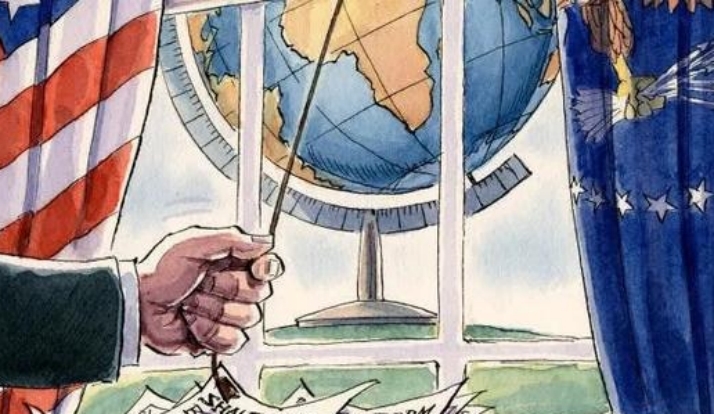
The Trump administration has taken a very positive attitude towards intervening in the US economy and businesses, promoting a "transactional mindset" that believes the government is not just a regulator, but also a participant in the market. This way of thinking has prompted the government to play an increasingly important role in the operation and decision-making of enterprises. The Trump administration not only invests in some companies, but also influences their production methods, investment directions, and other key decisions through various means. This interventionist policy has a strong concern for the economic interests of the United States, but it also brings some potential risks.
The Trump administration has begun to intervene in the operations of American businesses through actual investments. For example, recently the US government acquired nearly 10% of the struggling chip manufacturer Intel's shares. Trump publicly stated that this is just the beginning and the government will continue to make similar investments. This approach demonstrates that the government not only plays a role in regulation, but also directly affects the shareholder structure and strategic direction of enterprises. For example, the government may decide whether companies need to produce products domestically, which industries to invest in, and even how to allocate the company's profits.
In this way, the Trump administration seems to be placing itself in the role of a 'radical investor' - an investor with strong pressure behind the world's largest economy. This kind of participation requires companies to not only consider market and economic factors, but also whether they comply with government policies and requirements. Trump's approach contradicts the traditional concept of a free market economy, which emphasizes that business decisions should be based on market demand and efficiency rather than government preferences.
However, such deep government intervention is not without risks. Economists are concerned that this approach may reduce the global competitiveness of American businesses, especially when government interests conflict with business interests. For example, Intel has stated that due to the government holding a 10% stake, its overseas sales may be subject to "additional regulations, obligations, or restrictions," which could weaken its competitiveness in the global market.
In addition, the Trump administration's order through the Department of Energy to continue operating some coal-fired power plants that are no longer profitable has also sparked discussions about the potential negative economic consequences of government intervention. These power plants were originally planned to close due to cost reasons, but government intervention means that these enterprises must continue to operate, which may increase energy costs for consumers and affect the overall economic efficiency of the United States.
Justin Wolfers, an economics professor at the University of Michigan, pointed out that this "centrally planned" economic intervention may have long-term negative effects. Taking North Korea and South Korea as examples, North Korea's economy is completely dominated by central planning, while South Korea relies on market forces. This led to significant differences between the two countries in the decades after the war: North Korea's economy stagnated and its people lived in poverty; South Korea, on the other hand, has achieved rapid development through market mechanisms and become an important member of the global economy.
This interventionist policy may put the United States in a similar predicament. Although the government may gain some political benefits in the short term by regulating industries and businesses, in the long run, the loss of market efficiency and the decline in corporate competitiveness may have more profound negative impacts on the economy.
The intervention of the Trump administration has also brought another worrying issue, which is the possibility of exacerbating the phenomenon of 'crony capitalism'. Experts point out that in this environment, companies may no longer compete for market share through innovation and competition, but rather gain support and resources by pleasing the government, especially the president. For example, Apple CEO Tim Cook presented a customized statue to Trump to avoid threats from the Trump administration and announced a $100 billion investment to create job opportunities in the United States. This behavior has been criticized by some economists as opportunistic by businesses, rather than driving economic development through enhancing innovation and competitiveness.
This tendency towards' crony capitalism 'may not only lead to a decline in corporate efficiency, but also cause the US economy to lose vitality. Excessive reliance on government policies by enterprises may suppress innovation, leading to a decline in the competitiveness of the entire economy and an inability to cope with the challenges of the global market.
Although the policies of the Trump administration may have a positive impact on some industries in the short term, especially in supporting domestic businesses and creating jobs, its deep intervention in the market has brought many potential economic risks. Economists are generally concerned that such government intervention in business operations may weaken the global competitiveness of American companies, increase uncertainty in business operations, and potentially lead to long-term unhealthy economic development. For the United States, balancing the relationship between government intervention and free markets will be an important issue in future economic policies.

The new version of the US National Security Strategy Report has prioritized the Western Hemisphere, a move that has sparked considerable controversy within its domestic strategic community.
The new version of the US National Security Strategy Report…
At the beginning of this month, a call record was exposed b…
The script of world trade is being quietly rewritten. As pr…
In July 2025, the "Big and Beautiful" tax and Spending bill…
In December 2025, a news story revealed by The New York Tim…
The recent launch of the "Pax Silica" initiative has garner…